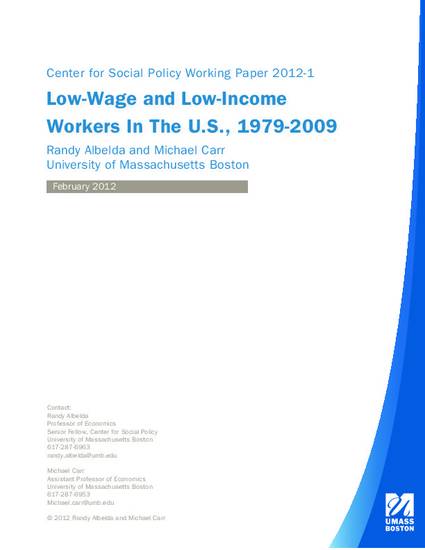
Three decades of stagnating earnings for bottom decides of male wage earners and 1990s anti-poverty policies promoting employment among poor single mothers suggest increases in the ranks of low-wage breadwinners living in low-income households. Low-wage workers often get few employer sponsored benefits, while antipoverty programs target poor non-earners; these factors suggest low-wage and low-income workers may be unprotected by employer or government supports. Using the Annual Economic and Social Extracts of the Current Population Survey (CPS) from 1980-2010, the authors explore changes in low-income and low-wage earners by gender and family status. The authors find a growth in low-wage and low-income workers for all family statuses over the last three decades, controlling for demographic and human capital characteristics. We also find that for a set of employer and government supports, these workers are the most likely to fall “betwixt and between” eligibility for anti-poverty supports and receiving employer benefits.
Available at: http://works.bepress.com/michael_carr/1/

Center for Social Policy Working Paper 2012-1.